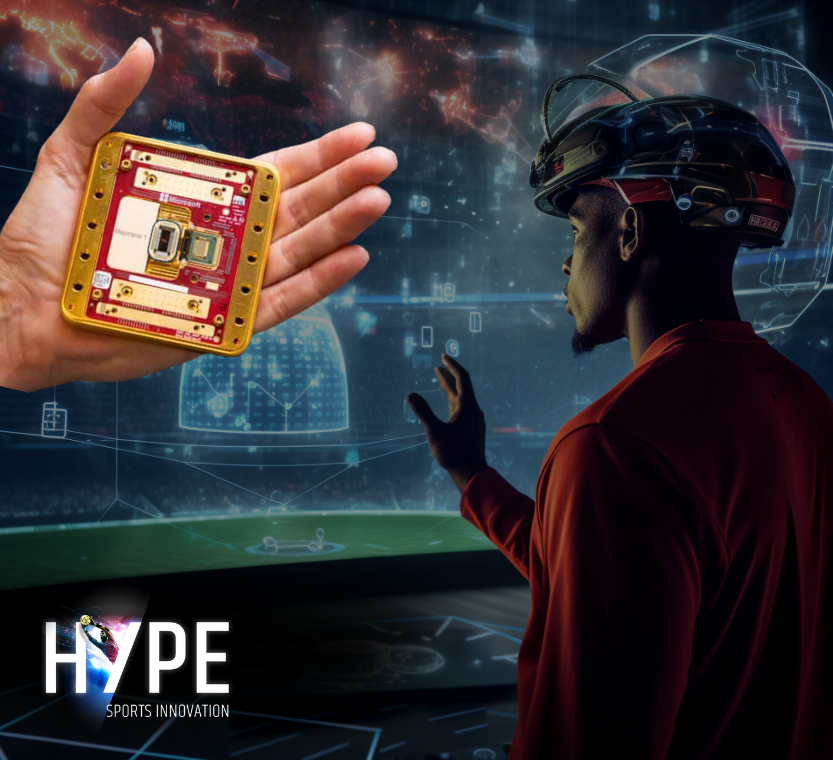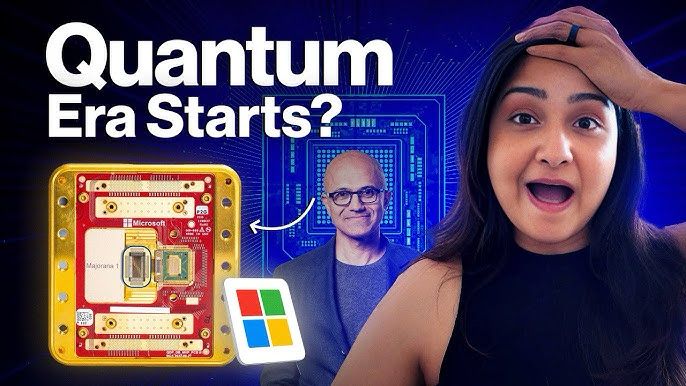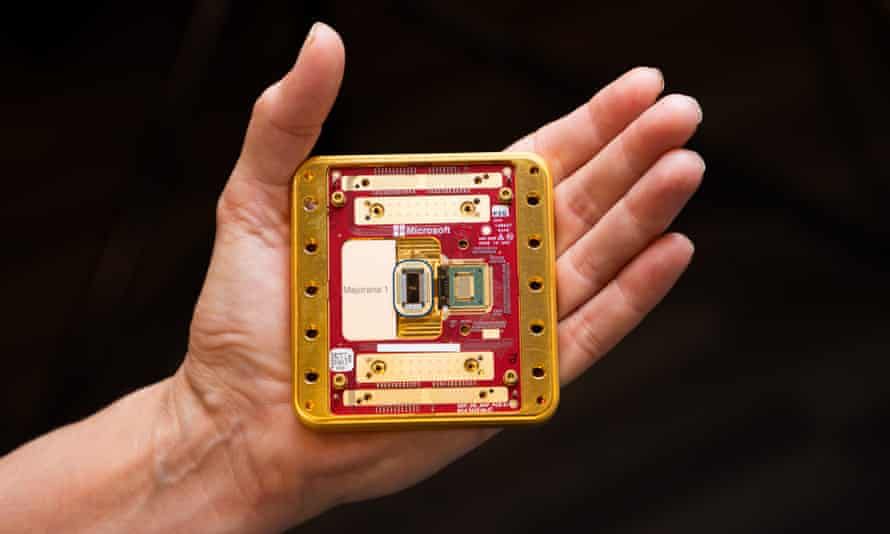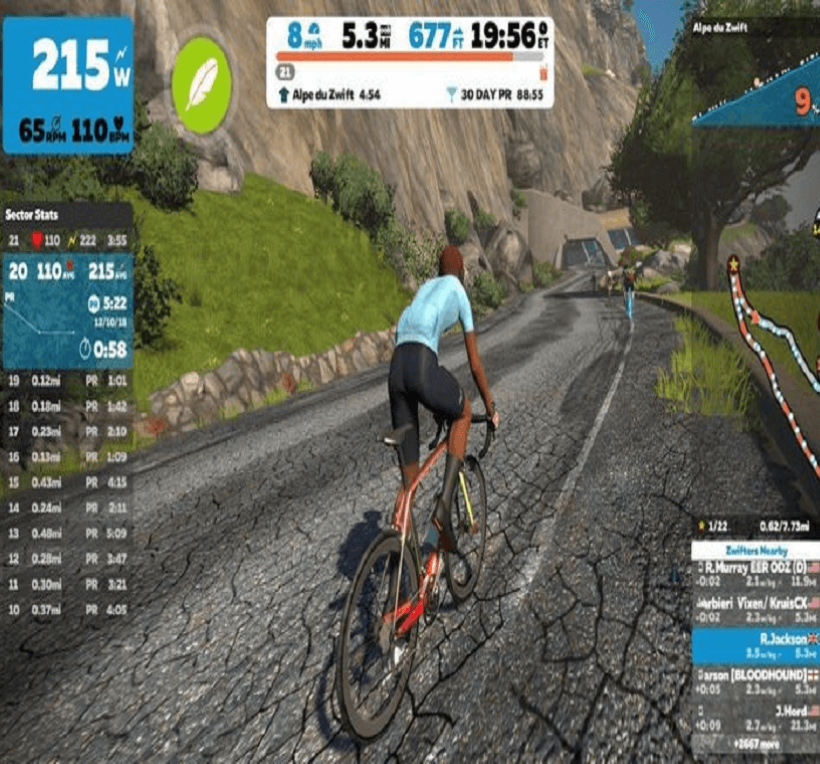

Quantum Sports: because Microsoft Thought AI Was Too Mainstream..
Est 3 Min Read
Quantum Sports: because Microsoft Thought AI Was Too Mainstream..
Microsoft’s recent Innovation and the (Supposed) Future of the Game
Okay, let’s be real for a second. Quantum computing is one of those topics that makes you feel either like a genius for knowing the term or a complete fraud for pretending you understand it. Personally, I fall into the latter category. But hey, that’s never stopped me before.
So, here I am, trying to wrap my head around Microsoft’s latest “this-will-change-the-world” announcement: a quantum chip called Majorana 1. Supposedly, this thing is a game-changer—not just for science, medicine, and AI, but for sports. Now, I know what you’re thinking: “Wait, quantum computing in sports? Are we talking about AI referees that don’t ruin games, or training programs that turn me into the next Messi overnight?” Well… maybe. Microsoft says this chip could accelerate quantum computing’s arrival way sooner than expected—sooner than we’re all mentally prepared for, honestly. If they’re right, quantum computers could go from “locked away in secret labs” to “small enough to fit in the palm of your hand” (which, if true, would be a tiny bit terrifying). Microsoft is hyping this up as the semiconductor moment of quantum computing—the kind of breakthrough that could take quantum from sci-fi to everyday tech, just like semiconductors shrank computers from warehouse-sized monstrosities to pocket-sized distractions.
Big claim, right? Does it hold up? Who knows. But let’s pretend we understand it enough to discuss how it could shake up the sports world.
What Even IS Quantum Computing? (And Should We Pretend to Get It?)

Here’s my best shot at explaining quantum computing without embarrassing myself (too much).
• Regular computers work in 1s and 0s—like flipping a light switch on or off.
• Quantum computers? They can be 1 AND 0 at the same time. (Don’t ask me how, I didn’t invent physics.)
Basically, this means they can solve ridiculously complex problems at speeds today’s supercomputers can only dream about. Imagine trying to solve a maze by running every possible route simultaneously instead of testing one path at a time. That’s what quantum computing does. Why does this matter? Because quantum computers could revolutionize everything—from finding new medicines to predicting weather disasters to, apparently, making sure your favorite sports team never loses again (or at least that’s what I’d use it for). But there’s a catch: Quantum computers are delicate. Like, “house of cards in a hurricane” delicate. The smallest interference, and they start spitting out nonsense answers.
Which brings us to Microsoft’s big moment…
Microsoft’s Majorana 1: The Chip That Might (Or Might Not) Change Everything
One of the biggest problems with quantum computing is stability. Right now, quantum processors are like trying to balance a Jenga tower on a unicycle—one wrong move, and the whole thing collapses. Enter the Majorana 1 chip. Microsoft claims this chip dramatically reduces quantum errors, making these machines more reliable, scalable, and actually useful outside of sci-fi novels. To put it simply, if quantum computers are a wild horse, Majorana 1 is the miracle saddle that lets us ride it without getting thrown off. Sounds promising, right? Of course, we’ll see if it actually delivers. But let’s assume, for a moment, that Microsoft is onto something here. What could this mean for sports?

5 Ways Quantum Computing Could (Hypothetically) Change Sports Forever
1. AI Coaches That Know Everything (Literally)
Ever yelled at your team’s coach because you knew they were making the wrong call? Well, quantum computing might finally prove you right.
🔹 Coaches will be able to run millions of simulations in seconds and know the best play before the game even starts.
🔹 AI will predict opponents’ moves before they make them—no more surprises.
Example: A soccer coach could get real-time quantum insights on where to attack based on how the opponent’s defense shifts. Goodbye, guesswork.
Of course, this assumes the coach actually listens to the AI. Which, if history tells us anything, is a big if.
2. Superhuman Training Programs
Today’s athletes rely on coaches, data, and instincts to get better. But what if quantum computing could instantly tell them the exact way to improve?
🔹 Sprinters could optimize their technique down to the microsecond.
🔹 Basketball players could tweak their shot to perfection—every time.
🔹 Baseball hitters could analyze every swing to maximize home runs.
Example: A quantum training system could say, “Hey, if you adjust your wrist angle by 0.3 degrees, your three-point shot accuracy goes up by 12%.” And it would be right.
At that point, do we even need natural talent anymore? Asking for a friend.
3. Injury Prevention Before It Happens
Every athlete’s nightmare: a season-ending injury. Right now, trainers and doctors do their best to guess when a player is at risk. But what if quantum computing could detect injuries before they happen?
🔹 It could analyze a player’s movement, fatigue, and muscle strain in real time.
🔹 It could predict: “Hey, if you keep playing like this, you’ll tear your ACL in three weeks.”
Example: A football team’s AI trainer could tell a player: “Sit this game out or your knee explodes next month. Your call.”
4. No More Terrible Referee Calls
We’ve all been there—watching a game when the ref completely botches a call. What if AI never missed a single detail?
🔹 AI referees could process every movement in real time—no slow-motion replays needed.
🔹 Quantum-powered officiating could end bad calls forever.
Example: A soccer AI ref could instantly tell if a player actually got fouled or just flopped like a fish. Imagine a world where VAR decisions take milliseconds instead of minutes.
Would sports be better or worse without ref controversies? Hard to say.
5. The Ultimate Fan Experience
Quantum computing won’t just improve the game—it could completely transform how fans experience sports.
🔹 Stadiums will be designed with perfect sightlines.
🔹 Concession lines could move instantly—quantum AI will know what you want before you order.
🔹 Weather-proof stadiums? Check.
Example: Imagine a stadium where every seat feels like front row, the beer never runs out, and you never miss a play because you were stuck in line for nachos.
Now that’s progress.

So, Is This All buzz or The Real Deal?
Look, I’ll be the first to admit that half of this might not happen anytime soon—if ever. Quantum computing has a way of being “just 10 years away” for the past… well, forever.
But if Microsoft is right, and their Majorana 1 chip really does make quantum computing practical, then sports (and, you know, the world) might never be the same.
Until then, I’ll just sit here, pretend I fully understand how this works, and wait for the day when my quantum-powered AI coach tells me why my weekend football skills are beyond saving.
What do you think? Ready for a quantum-powered sports future, or still trying to process what you just read?
This March, we’re hosting an exclusive AI & Sports Tech Showcase, featuring top solutions shaping the future of sports.
Want an invite? Fill out the form here.
Amir Raveh,
CEO – HYPE Sports Innovation




Comments